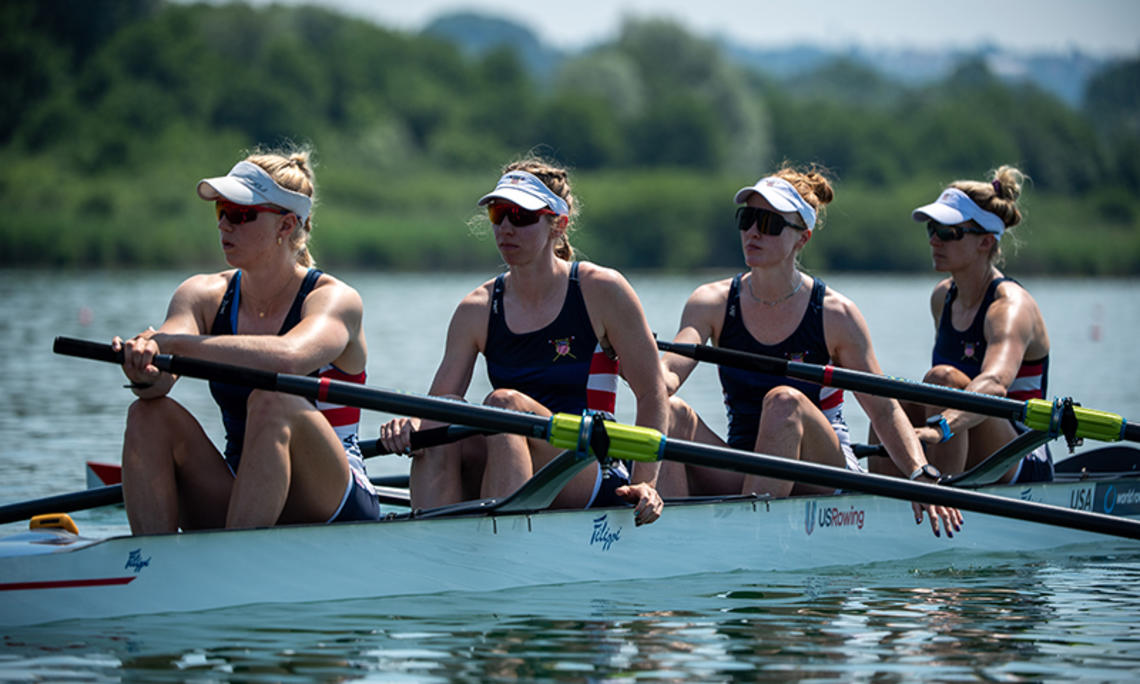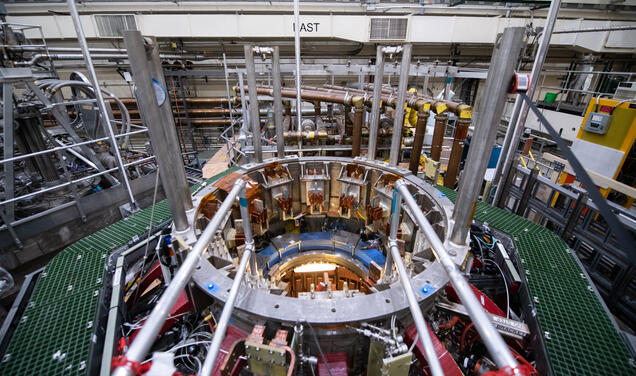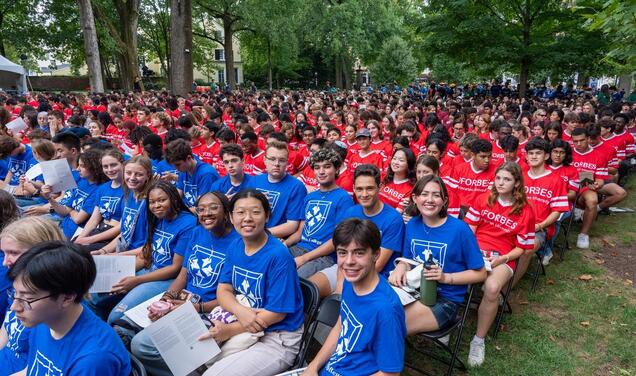Olympic Rower Claire Collins ’19 Continues Her ‘Joyful Pursuit’
Collins was one of four Princeton alumni named to the U.S. Olympic crews for Paris this week

As a rowing recruit on her official visit to Princeton, Claire Collins ’19 attended an undergraduate precept and noticed something distinctive about how the students approached their work.
“The point is not perfection, but to be curious, engaged,” she said. “What I experienced on that first day, and throughout my time at Princeton, was a joyful pursuit to be number one.”
Collins embraced that approach — and will now have a chance to carry it with her to the Paris Olympics. This week, she was one of four Princeton rowing alumni selected for the U.S. Olympic team, joining Kelsey Reelick ’14, Emily Kallfelz ’19, and Nick Mead ’17.
Collins, a 2021 Olympian and seven-time national team member, rowed throughout her Princeton career and won the C. Otto von Kienbusch Award as the top senior female athlete in 2019. Immediately after graduation, she began training at the USRowing training center in West Windsor, New Jersey. After weathering the pandemic at her home in Virginia, she began her international career in the U.S. women’s four, a boat with four athletes each rowing with one oar.
“Rowing as a sport is made up of so many dichotomies,” Collins said, when asked about the step she made from being a collegiate rower to rowing professionally. “There’s the beauty of the sport, but that beauty is masking the chaos that makes up a race. It’s one of the most team-oriented sports, but there’s also so much of an individual aspect. Ultimately, you have to be the best team to win.”
At Princeton, where the team goals ranged from rowing well every day to qualifying for the NCAA Championships, “it was very easy to translate our individual goals to support the team goals,” she said. But in national team selection, where not everyone makes the team, there are different dynamics at work.
“I have to figure out my training routines, how to avoid injury, how to maintain my mindset on my own,” Collins said. “That’s not to say we don’t have team goals, but you also have to show up as an individual rower.”
Collins, who spoke with PAW in late February, described the national team selection camp with a softness that belies the grueling training schedule. “We have several Tigers training in this group,” she said. “In general, the way we think, the way we approach each practice is to focus on the technical changes needed to get the boat flowing, to feel how the boat is running. It’s very analytical.”
Collins, an economics major, seems right at home with analytical training. “We bring a lot of attention to detail, recognizing and appreciating the balances we strike. It’s very similar to what I saw in that first precept during my campus visit: The attention to detail comes from the engagement of people talking about something they’re truly interested in — truly engaged in —and not afraid to ask questions, too. … In order to really utilize all of the things you have available to you, you can’t be afraid to ask questions and ask for help.”
She remembers an example from her Princeton days, when she was working on her first econ problem set and went to the McGraw Center for tutoring: “I walked in and the whole class was there doing the problem set!”
“I’ve used this on the national team,” Collins said. “I’ve learned to advocate for myself, for my strengths and my power, even when there are no guarantees.” This Tiger is, once again, in the joyful pursuit to be the best.










1 Response
Robert B. Schoene ’68
1 Year AgoThis Issue of PAW Is a Step Above
This issue of PAW is a step above. Great stories, journalism, and presentation. Bravo!